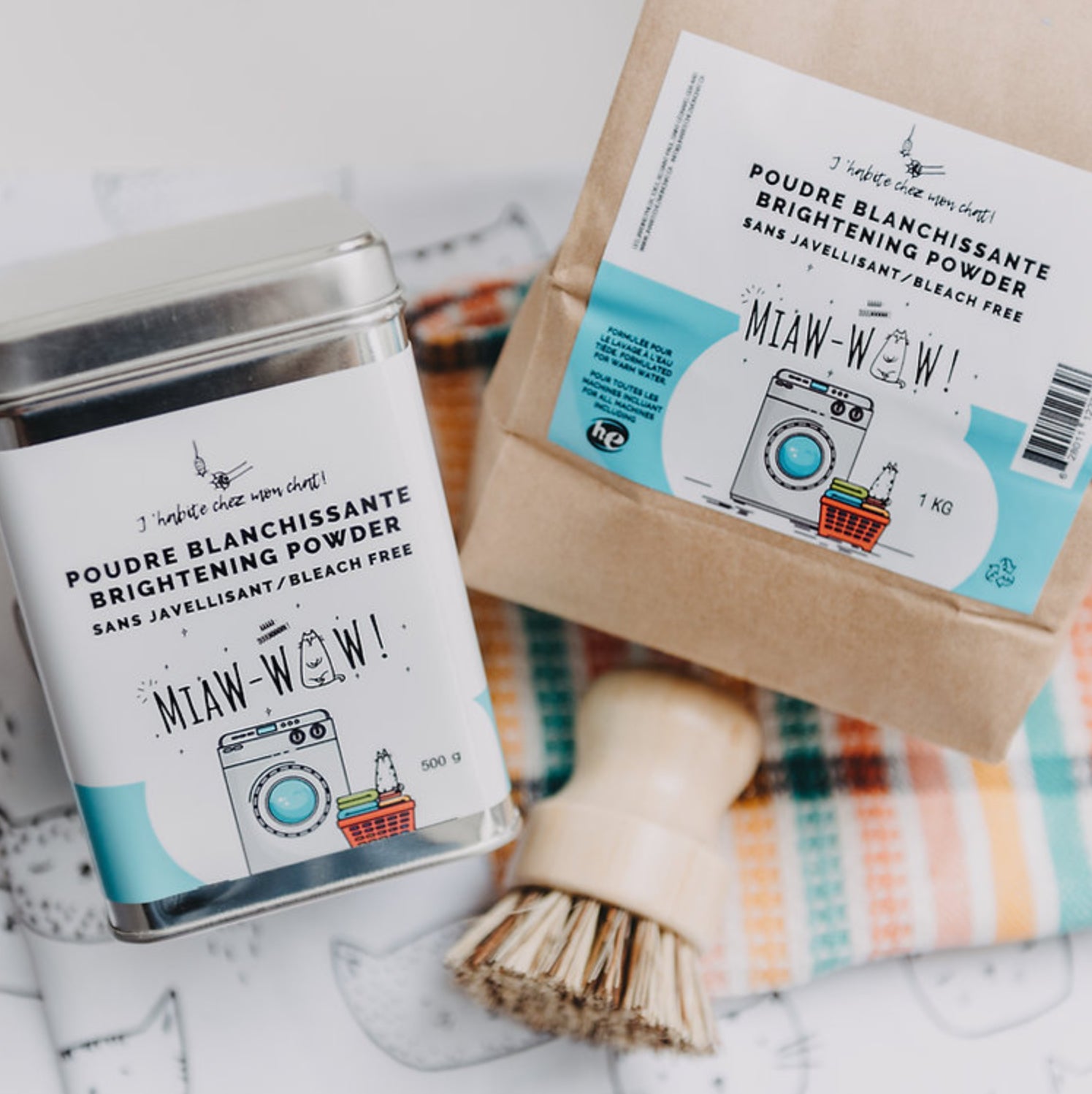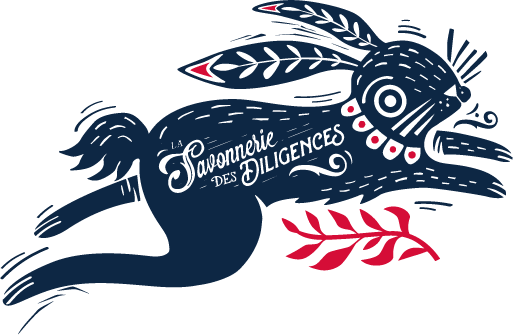Miaw-WoW Brigntening Powder - Bleach free
- Description
- Soap maker's notes
- Ingredients
Here is our Miaw-Wow brightening powder which is bleach free ! The one that was an integral part of the happiness of our grandmothers because it simplified their daily lives, is making a comeback in a growing number of laundry rooms, and with good reasons. You will believe it magical when you see the results when it is used as much to revive colors, as to bleach and remove stains, both as a pre-treatment and as a complement to our ecological laundry with enzymes.
Why will you like it ? Here are some reasons transmitted by our grandmothers :
. Safe brightening power for colors
. Compatible with high efficiency and standard washers
. Safe for colors
. Does not yellow the white
. Cleans persistent deposits from hard water
. Ecological, non-toxic for the environment and fully biodegradable
Better still...:
. Handmade
. Vegan
. 100% natural
. Palm oil free
. Phthalate free
. Paraben free
. Sulfate free
. Petroleum products free
. No artificial coloring
. Without NTA
. Formaldehyde free
. Fragrance free
. Biodegradable
CAUTION : Avoid inhaling, avoid contact with eyes and skin.
SOAP Q&A
What is a soap?
According to Le Petit Robert dictionary : Soap is a "product used for degreasing and washing, obtained by the action of an alkali (base) on a fatty substance (especially vegetable oils)". In other words, soap is the product of a reaction between a base and one or more acids. The chemical reaction between a base and an acid produces a salt. Therefore, soap is a salt. However, not all salt is soap.
Are your soaps natural?
Although there is no certification for the term "natural", we can tell you that our soaps are made right here in our Austin workshop with olive oil, organic coconut oil and beeswax (Ferme Intermiel, Mirabel). They contain no synthetic fragrances (only essential oils or natural ingredients such as honey, cocoa, oatmeal), no additives, stabilizers or preservatives. They are of vegetable origin, biodegradable, and you can use them for body, face and hair.
Are your soaps organic?
We try to use organic ingredients, such as shea butter, coconut oil, sunflower oil, whenever possible and are committed to sourcing raw materials that are not synthetically produced; and do not contain GMOs like many other vegetable oils (palm, soybean, canola, etc.). We make the best possible choices, and work with local producers whenever possible (the Champy farm for sunflower oil, Aliksir for many of our essential oils). All the vegetable oils in our Soleil de l'Est sunflower soaps are organic.
Do you manufacture liquid soap?
No, and it's not in our plan. Liquid soaps contain a high proportion of water (first ingredient) and a bottle that is rarely recycled and/or reused. As a company, we’ve made an ecological choice to encourage our customers to use bar soap instead of liquid soap. Also, the bottle (the container) is worth about 40% of the cost of manufacturing the product. You pay for the bottle first, for the water, and then for the rest. For liquid soap, we recommend the company Oneka in Frelighsburg, which makes excellent shampoos, conditioners and liquid shower gels.
Do your soaps melt quickly?
No. When buying handmade soap, it is important to dry it on something that allows air circulation - the soap should be able to dry on the underside, ideally on a soap dish. For example, for a family of four using a bar of soap daily – on body, face and hair - it will last about two weeks.
Do I have to dry my soaps? I've heard that I have to dry them...
Soaps must dry for 30 days before being used. When you buy our soaps, you don't need to dry them any longer, but if you buy more than one, be aware that olive oil soap hardens in the open air, so don't wrap it for conservation. If you keep a bar of soap for several months, it will become harder and may last longer, but we recommend using it within a year of purchase for optimum quality.
How long can we keep our products?
We recommend using soaps, balms and deodorants within one year of purchase and body butters and shea butter within two years of purchase to ensure optimal quality.
What is the best soap for dry skin or eczema?
All of our soaps are very moisturizing, but the Mère-Grande soap (Lavender, shea butter and calendula) is particularly suitable for sensitive and reactive skin. This soap contains lavender essential oil, which repairs and soothes the skin, 5% shea butter, which protects and revitalizes the skin, and we use olive oil macerated with calendula, a medicinal plant that relieves irritation, to make our soap. We also have Mama Karité, which contains 50% shea butter, a real cream in a bar! For more information on the best soaps for dry or mature skin, click here!
What is the best soap for oily skin?
La Sirène, our clay and grapefruit soap, regulates oils by being a little astringent, without being too strong for the skin like commercial abrasive solutions. It is gentle, yet effective in regulating oils on the face or body, an excellent choice for athletes or people with oily skin or hair, or for acne-prone skin. All soaps containing charcoal are also very suitable for regulating facial oils. For more information on the best soaps for oily skin, click here!
What soap can I use to wash my hair?
What is saponification?
Corporate offers
Think of the Savonnerie des Diligences for your corporate gifts and show your colors!
Learn more



